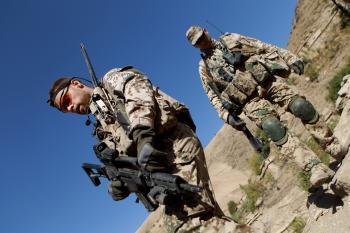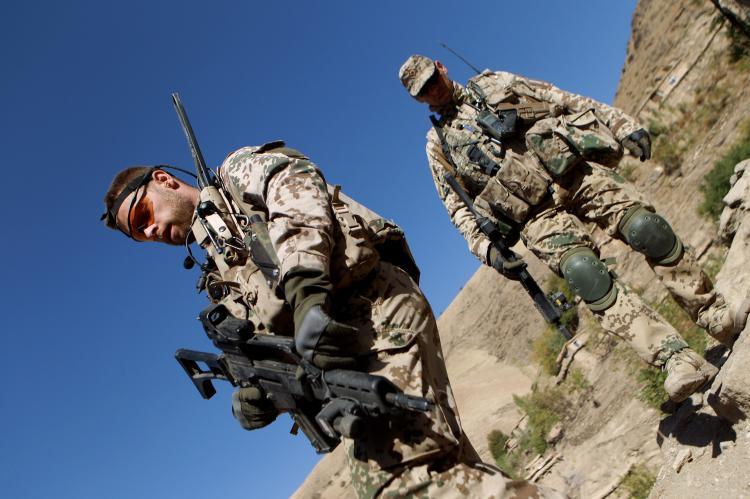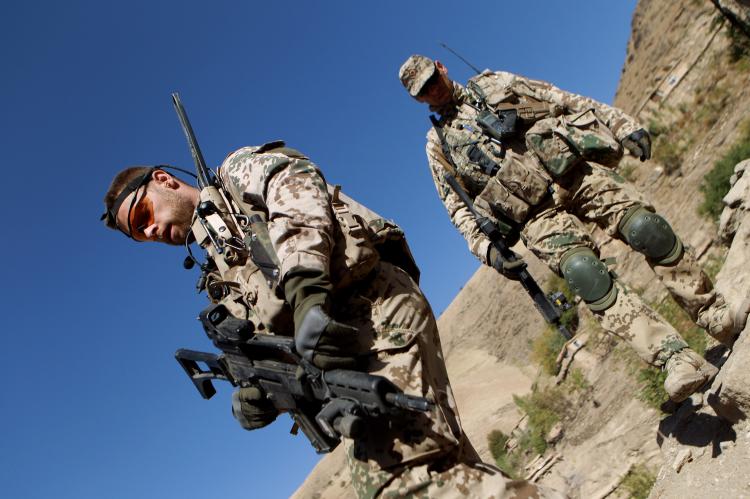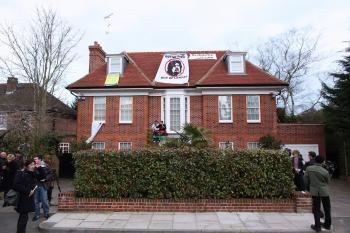The United Nations Security Council asked governments to increase their efforts to reach the mission goal of the International Security Assistance Force (ISAF), which extended the mission in Afghanistan for another year. The 15-member body unanimously adopted the resolution on Wednesday.
They saw “the need to further strengthen ISAF to meet all its operational requirements,” according to a U.N. statement. The resolution is similar to one that passed last year, after which the number of troops increased by 80 percent to the current 120,000.
According to the ISAF website, their mission goal is to support the government of the Islamic Republic of Afghanistan in providing a secure environment that sustains stability, according to standards of the Afghan people. To achieve this, the ISAF focuses on three objectives. The first is to “reduce the capability and will of the insurgency.” The second objective is to aid in the “growth in capacity and capability of the Afghan national security forces (ANSF).” And the third is to “facilitate improvements in governance and socio-economic development.”
The high and increasing number of civilian casualties, particularly among women and children, and the Taliban’s use of children in combat in Afghanistan stirred strong concern within the security council.
The security council asked for an increase of troops because of “increased violent and terrorist activities by the Taliban, al-Qaeda, other illegal armed groups, and criminals.” The security council also addressed the “increasingly strong links between terrorism and illicit drugs.”
After the seven years that NATO has lead the ISAF operation, the security council urged the ISAF to speed up the training of the Afghan security forces in order for them to become self-sufficient, ensuring security and the rule of law in an accountable and ethnically-balanced way.
The resolution also called for further efforts by the government to “fight corruption, promote transparency and increase its accountability.” The council stressed the importance of the Afghan people in making progress regarding security, governance, human rights, the rule of law, and overcoming the interconnected challenges the country faces.
The council also called for the reform of the prison sector and respect for human rights, particularly women’s rights. Under the Afghan Constitution, women are empowered to fully participate in public life.
Also on Wednesday, it was reported that NATO occasionally allows Taliban leaders to enter Kabul, so they can dialogue with the government. President Hamid Karzai confirmed to CNN on Monday that he has “unofficial, personal contacts” with the Taliban.
They saw “the need to further strengthen ISAF to meet all its operational requirements,” according to a U.N. statement. The resolution is similar to one that passed last year, after which the number of troops increased by 80 percent to the current 120,000.
According to the ISAF website, their mission goal is to support the government of the Islamic Republic of Afghanistan in providing a secure environment that sustains stability, according to standards of the Afghan people. To achieve this, the ISAF focuses on three objectives. The first is to “reduce the capability and will of the insurgency.” The second objective is to aid in the “growth in capacity and capability of the Afghan national security forces (ANSF).” And the third is to “facilitate improvements in governance and socio-economic development.”
The high and increasing number of civilian casualties, particularly among women and children, and the Taliban’s use of children in combat in Afghanistan stirred strong concern within the security council.
The security council asked for an increase of troops because of “increased violent and terrorist activities by the Taliban, al-Qaeda, other illegal armed groups, and criminals.” The security council also addressed the “increasingly strong links between terrorism and illicit drugs.”
After the seven years that NATO has lead the ISAF operation, the security council urged the ISAF to speed up the training of the Afghan security forces in order for them to become self-sufficient, ensuring security and the rule of law in an accountable and ethnically-balanced way.
The resolution also called for further efforts by the government to “fight corruption, promote transparency and increase its accountability.” The council stressed the importance of the Afghan people in making progress regarding security, governance, human rights, the rule of law, and overcoming the interconnected challenges the country faces.
The council also called for the reform of the prison sector and respect for human rights, particularly women’s rights. Under the Afghan Constitution, women are empowered to fully participate in public life.
Also on Wednesday, it was reported that NATO occasionally allows Taliban leaders to enter Kabul, so they can dialogue with the government. President Hamid Karzai confirmed to CNN on Monday that he has “unofficial, personal contacts” with the Taliban.




